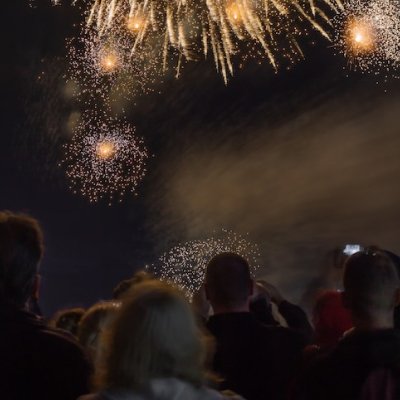el Día D
Popularity
500+ learners.
- Examples
Una vez hemos decidido el Día D, ¿qué debemos hacer? | Once we decided D-Day, what should we do? |
Sabes lo que es el Día D, ¿verdad? | You know what D-day is, don't you? |
¿Qué Países Participaron en el Día D? | What Countries Were Involved in D-Day? |
El difunto Presidente, Francois Mitterrand, dijo que nada en la historia se compara con el Día D. | The late President, Francois Mitterrand, said that nothing in history compares to D-day. |
Su protección durante los preparativos para el Día D es una preocupación permanente para los Aliados. | Their protection throughout the preparations for D-Day is a permanent concern for the Allies. |
¿Estuviste en el Día D? | You were there for D-Day? |
Soldados británicos desembarcan en la costa de Normandía, durante el Día D, el 6 de junio de 1944. | British soldiers land on the Normandy coast on D-Day, 6 June 1944. |
Y, por último pero sin prisa, marcarse una fecha para dejar de fumar, lo que llamamos el Día D. | And finally but slowly, decide a date to quit smoking, which we call D-Day. |
La fecha propuesta para el Día D será aproximadamente 14 semanas después de la fecha de envío de las cartas del Secretario General. | The date proposed for D-Day will be approximately 14 weeks after the date of the dispatch of the Secretary-General's letters. |
Por lo tanto, si existe una posibilidad de llegar a esa política, desde cualquier dirección, entonces será el Día D para esta parte de mi política. | So, if there is a possibility of arriving at that policy, from whatever direction, then it will be D-day for this part of my policy. |
Se prevé que la Comisión de Identificación completará su labor antes de iniciarse la campaña de referéndum, es decir, el Día D más 18 semanas. | It is envisaged that the Identification Commission will complete its work before the beginning of the referendum campaign, that is by D-Day plus 18 weeks. |
Cuando Franklin Roosevelt juró derrotar a dos enemigos al otro lado de dos océanos, no pudo prever el Día D o Iwo Jima, pero no se hubiera sorprendido del resultado final. | When Franklin Roosevelt vowed to defeat two enemies across two oceans, he could not have foreseen D-Day and Iwo Jima—but he would not have been surprised at the outcome. |
Vital desde el Día D y durante toda la pelea, el reabastecimiento de combustible es una preocupación constante de los aliados que están llenos de imaginación para satisfacer las necesidades de las tropas. | Vital as of D-Day and throughout the fighting, supply is a constant concern of the Allies who are overflowing with imagination to meet the needs of the troops. |
Parece que el día D fue demasiado para él. | It seems D-Day was too much for him. |
Sabía que no empezarían el día D sin ti. | I knew they wouldn't dare start D-day without you. |
Mañana es el día D, el día que alcanzamos a los flash-forwards. | Tomorrow is d-day—the day we catch up to the flash-forwards. |
Señor, será mejor que le diga lo que pasó en el día D. | Sir, I'd better really tell you what happened on D-day. |
Yo no había estado allí desde el día D. | I hadn't been there since d-day. |
Yo no había estado allí desde el día D. | I hadn't been there since D-Day. |
No quiero oír nada sobre el día D. | I don't want to hear about D-Day. |
Random Word
Roll the dice and learn a new word now!
Want to Learn Spanish?
Spanish learning for everyone. For free.















